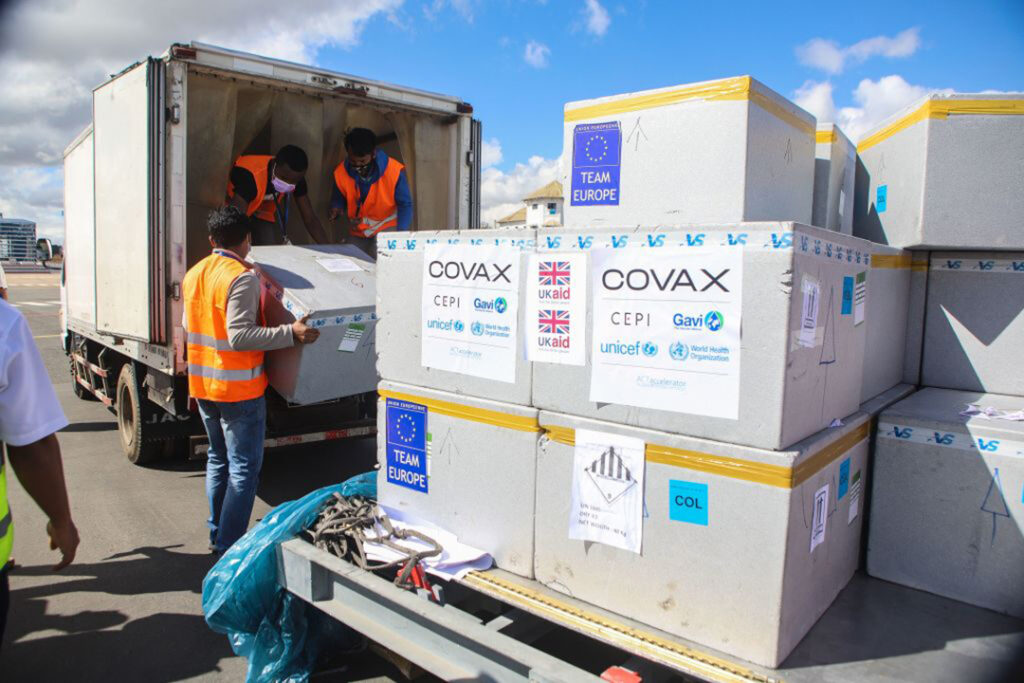ADF STAFF
The European Union (EU) announced during the Global Health Summit in late May that it will invest 100 billion euros (more than $122 billion) to build COVID-19 vaccine production hubs in Africa.
The EU’s investment will help strengthen longstanding efforts to reduce African countries’ dependence on imported drugs to treat deadly diseases.
The contribution could include direct EU aid and funding from national development agencies and the European Investment Bank, London’s Financial Times reported. The EU also wants to help strengthen regulatory capacity, including the establishment of the African Medicines Agency, a continentwide drug regulator.
Ayoade Alakija, co-chair of the Africa Vaccine Delivery Alliance, welcomed news of the EU’s backing. Alakija told Financial Times that the alliance had three sites in mind for future manufacturing centers: Rwanda, South Africa and at the Institut Pasteur in Senegal.
“Africa’s best strength is its people. We are with you,” Ursula von der Leyen, president of the European Commission, said in a report by United Arab Emirates newspaper The National. “We’ll mobilize the resources necessary to start growing again. For Africa and a truly global recovery.”
The EU’s efforts are designed to mesh with an African Union goal to produce 60% of Africa’s routine vaccine needs — such as those to prevent polio and Hepatitis A — on the continent by 2040, the Financial Times reported. Currently, only 1% of such vaccines are produced in Africa.
A week after the EU’s announcement, the International Finance Corp. (IFC) said it will explore helping African producers boost vaccine manufacturing. IFC’s partners, including the U.S. International Development Finance Corp., France’s private sector development arm Proparco, and the German Development Finance Institution, said they will help fund vaccine hubs on the continent.
“We need to vaccinate as quickly as possible the maximum number of people … all over the world,” French President Emmanuel Macron said in a Reuters report. “It is our moral duty; it is also in everyone’s interests.”
U.S. President Joe Biden in early May supported waiving intellectual property rights for COVID-19 vaccines, a move that would let other countries produce vaccines developed in the U.S.
“These are the first major steps to vaccinate the world against COVID-19,” Fatima Hassan, director of South Africa’s Health Justice Initiative, told Reuters after Biden’s decision.
In late May, the World Health Organization (WHO) said Africa needs 20 million doses of COVID-19 vaccine for African countries to administer second doses to those who have received their first shot. The request came after an uptick of COVID-19 infections in 11 African countries.
“We are monitoring the situation very closely,” Dr. Matshidiso Moeti, WHO regional director for Africa said. “We see that we are balancing on a knife’s edge. So this makes the rapid rollout of COVID-19 vaccines all the more important.”
Moeti said an additional 200 million doses are needed to vaccinate 10% of Africa’s population of about 1.2 billion by September.
The EU has pledged to donate at least 100 million COVID-19 vaccine doses to developing countries this year, according to Fortune magazine. The U.S. has vowed to donate 80 million vaccines, a substantial portion of which will be through donations to COVAX, the global plan to distribute vaccines fairly.

